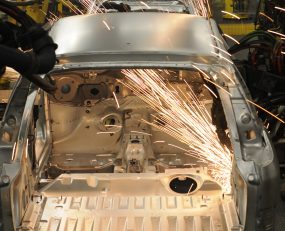
When Donald Trump became President of the United States, he did so on a protectionist platform, promising voters that he would stop foreign companies from ‘dumping’ their products on US markets and damaging domestic manufacturers.
Free trade agreements such as the Trans-Pacific Partnership (TPP) and even NAFTA came into his sights at an early stage. Now he has held good on his promise to protect key US industries, starting with steel and aluminium, by threatening to impose tariffs of 25% and 10% respectively on foreign imports of these commodities.
The tariffs have not been targeted at individual markets such as China, whom many consider as the worst offender when it comes to subsidizing the production of steel and dumping it on the world market. Rather, to the concern of even some Trump supporters, the tariffs will affect all imports including those from close partners such as the EU and even neighbouring NAFTA countries, Canada and Mexico.
At the moment, the imposition of tariffs is still only a threat. Indeed, the EU’s trade commissioner, Cecilia Malmstrom, has called for a calm debate, hoping, presumably that Trump will listen eventually to Republicans in his own government who want to avoid a trade war with the rest of the world. However, the EU also plans what it says will be a proportionate response to the tariffs which will target important constituencies in the Trump heartland. These would include placing its own tariffs on peanut butter, cranberries, orange juice, bourbon and even Levi jeans and Harley Davidson motorcycles. It is believed that the punitive cost of such tariffs would amount to at least $3.5 billion.
Trump’s justification for the tariffs is on the grounds of ‘internal or national security’ using a mechanism known as Section 232. However many believe this is a smokescreen for an economic safeguard measure, and as such it would be legally possible for the EU, and other trading partners, to make use of World Trade Organisation rules to implement retaliatory and balancing tariffs.
The EU is not alone with Mexico, China, Canada and Brazil all committing to the implementation of countermeasures if the tariffs go ahead. For his part, Trump has hinted that he could then escalate the crisis by targeting products such as European vehicles.
Perhaps the best chance for a de-escalation of the potential trade war will come from domestic pressure on the President. US car assemblers and component manufacturers have already warned that a 25% increase in the cost of steel will have a major impact on the price of new, US-made vehicles. This will not only lead to inflationary pressures but also the risk of job cuts, detrimentally affecting the same workers which Trump’s aggressive trade policy was designed to protect.